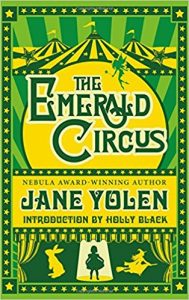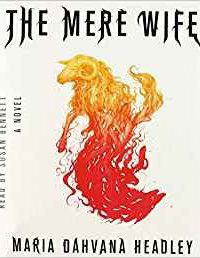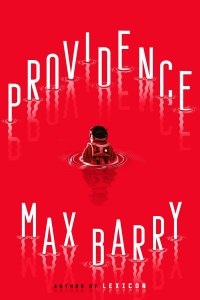Gary K. Wolfe Reviews The Emerald Circus by Jane Yolen
The Emerald Circus, Jane Yolen (Tachyon 978-1-61696-273-9, $15.95, 282pp, tp) November 2017.
 One of Jane Yolen’s abiding concerns in the hundreds of books she’s written or edited has been the ways in which stories and lives shape each other, so it’s not too surprising that her new collection The Emerald Circus begins and ends with actual historical figures, Hans Christian Andersen and Emily Dickinson. In between, we also briefly meet Edgar Allan Poe, Queen Victoria, Benjamin Disraeli, Alice Liddell as an old lady, and even Geoffrey of Monmouth. On the fictional side of the ledger, there are tales and characters drawn from Arthurian legends, J.M. Barrie, John Keats, L. Frank Baum, and O. Henry. What we do not see, with one or two exceptions, are stories that engage with traditional folk and fairy tales of the sort that underlie Briar Rose and stories like “Granny Rumple”.
One of Jane Yolen’s abiding concerns in the hundreds of books she’s written or edited has been the ways in which stories and lives shape each other, so it’s not too surprising that her new collection The Emerald Circus begins and ends with actual historical figures, Hans Christian Andersen and Emily Dickinson. In between, we also briefly meet Edgar Allan Poe, Queen Victoria, Benjamin Disraeli, Alice Liddell as an old lady, and even Geoffrey of Monmouth. On the fictional side of the ledger, there are tales and characters drawn from Arthurian legends, J.M. Barrie, John Keats, L. Frank Baum, and O. Henry. What we do not see, with one or two exceptions, are stories that engage with traditional folk and fairy tales of the sort that underlie Briar Rose and stories like “Granny Rumple”.
In other words, Yolen’s sources here are literary and historical, for the most part, and a few are what we might call critical fictions, commenting on, interpreting, and occasionally subverting their sources. The most famous such example is one of four carried over from her 2000 collection Sister Emily’s Lightship. “Lost Girls” cheerfully unpacks the almost pathological narcissism that was always just an inch below Peter Pan’s boyish surface, as a contemporary young woman very satisfyingly organizes a labor movement among the various “Wendys” from different historical periods who are left behind in Neverland while the boys go off on adventures. By the same token, the sentimentally contrived twist endings of O. Henry stories get a delicious twist of their own in “The Gift of the Magicians, With Apologies to You Know Who”, which ingeniously combines a familiar O. Henry tale with Beauty and the Beast (just about the only classic fairy tale alluded to in the book, except for a reference to Red Riding Hood in another Alice-related story, the brief “Wonder Land” with its distinctly modern young girl protagonist). We meet two different versions of Alice, as a young girl learning the power of laughter in “Tough Alice” and, more touchingly, as an 80-year-old widow remembering her first trip down the rabbit hole in “Rabbit Hole”. A similar contrast between the young and old Hans Christian Andersen is at the center of “Andersen’s Witch”, an insightful meditation on inspiration and ambition in which Hans, as a desperately poor child, is visited by the Ice Maiden, who at the end of his life returns as the Snow Queen.
Yolen’s fascination with how stories grow and evolve is nowhere more evident than in her treatment of Arthurian material. As she points out in her helpful story notes, she had collected a number of her Merlin stories in an earlier volume called Merlin’s Booke, and two of those are included here. The best is “Evian Steel”, set on a secret island of women famed for their skills at forging swords, and it’s not hard to figure out what particular sword eventually gets forged here. (In an odd way, the story resonates with the very different “Lost Girls” in the manner in which it insinuates a key role for women in a traditional boys’ tale.) Other aspects of the Arthurian legend are unpacked in surprising ways in “The Quiet Monk”, with its haunting version of an aging Lancelot, and “The Confession of Brother Blaise”, in which a young scribe named Geoffrey, having heard the confessions of the mysterious aging traveler Blaise, is given some surprising editorial advice about how he should present the story to the world.
Of the remaining stories, the most substantial and impressive include the now-classic, Nebula-winning “Sister Emily’s Lightship”, which somehow manages to frame the eccentric genius’s poetry in what amounts to a UFO story without trivializing anything; “Blown Away”, which imagines Dorothy Gale’s life both before and long after her adventure with the twister (and which involves her joining the circus, which gives the collection its title); and “The Jewel in the Toad Queen’s Crown”, a historical tale which really doesn’t need its brief bit of magic, exploring as it does the uneasy relationship between the rather anti-Semitic Victoria and her prime minister Disraeli as he works to bring India into her empire. The toads are much more impressive in “A Knot of Toads” (“knot” turns out to be the collective noun), one of several tales that take advantage of Yolen’s part-time residency in Scotland. A professor returns to the Scottish village where her long-alienated father has just died, and learns of the suspicious circumstances of his death – he was apparently terrified – and of his obsessive research into the history of witches in the area. Yolen says the story was partly inspired by M.R. James, and the remote, brooding 1930s setting achieves much of the effect of a classic ghost story; it’s the most elegantly structured story in the book. Yolen provides not only fascinating story notes, but accompanies each note with a poem related to the theme of the tale, of which my favorite by far describes Emily Dickinson taking the stage at a jazz club with Charlie Parker improvising backup.
Gary K. Wolfe is Emeritus Professor of Humanities at Roosevelt University and a reviewer for Locus magazine since 1991. His reviews have been collected in Soundings (BSFA Award 2006; Hugo nominee), Bearings (Hugo nominee 2011), and Sightings (2011), and his Evaporating Genres: Essays on Fantastic Literature (Wesleyan) received the Locus Award in 2012. Earlier books include The Known and the Unknown: The Iconography of Science Fiction (Eaton Award, 1981), Harlan Ellison: The Edge of Forever (with Ellen Weil, 2002), and David Lindsay (1982). For the Library of America, he edited American Science Fiction: Nine Classic Novels of the 1950s in 2012, with a similar set for the 1960s forthcoming. He has received the Pilgrim Award from the Science Fiction Research Association, the Distinguished Scholarship Award from the International Association for the Fantastic in the Arts, and a Special World Fantasy Award for criticism. His 24-lecture series How Great Science Fiction Works appeared from The Great Courses in 2016. He has received six Hugo nominations, two for his reviews collections and four for The Coode Street Podcast, which he has co-hosted with Jonathan Strahan for more than 300 episodes. He lives in Chicago.
This review and more like it in the November 2017 issue of Locus.







